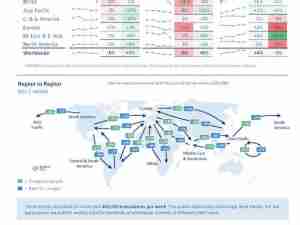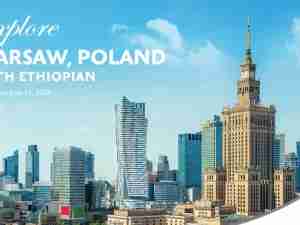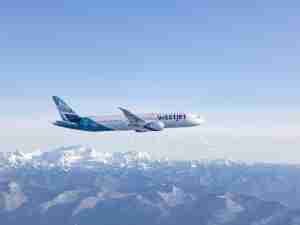Lufthansa and Finnair among heaviest users of Siberian airspace
By: Reuters | Aug 07 2014 at 04:08 PM | Air Cargo
The European airlines Lufthansa, Air France-KLM and Finnair would be hardest hit by a potential closure of the airspace over Siberia, data from a flight tracking website shows.
Prime Minister Dmitry Medvedev said that Moscow was considering banning European and U.S. airlines from flying transit routes through Russian airspace in retaliation for tougher sanctions from Europe and the United States.
According to data from Flightradar24, just over 1,600 flights crossed Siberian airspace in a recent seven-day period. The airspace is used on routes from Korea, Japan and China to Europe, for example.
During the seven-day period analysed by Flightradar24, of the European airlines transiting through the space, Lufthansa made 162 crossings, followed by Air France with 133, KLM's 116, Finnair's 115, and 93 for British Airways.
For loss-making Finnair, situated right next to Russia and therefore very reliant on Russian airspace, a closure would be particularly hard, said Nadejda Popova, Senior Travel Analyst at the market researcher Euromonitor.
Finnair, which in June cut its sales guidance for the year, was the top faller on the Thomson Reuters Europe Airlines Index on Thursday, down 4.6 percent.
Finland's prime minister said on Wednesday that the sanctions against Russia could lead to an economic crisis for his country, and that it would seek financial compensation from the EU if it was affected disproportionately.
In general, a closure of airspace would result in higher fuel costs and raise ticket prices for consumers, analysts said.
That could also put European carriers at a disadvantage to Asian rivals as they compete for business and tourism travel from a region with a growing middle class and demand for flights.
Still, the ban could end up hurting Russia's Aeroflot more, as it would lose out on the overflight fees, and the risk for Russia is that the United States and Europe could fight back with more measures of their own.
"This is a very risky road," Popova said. "For all the difficulties that we can see the European airlines experiencing, we can also see the Russian airline segment being hurt due to missed royalties and potential future sanctions against all Russian airlines."
Aeroflot's annual overflight royalties have never been disclosed, but Irina Stupachenko, analyst at the Moscow brokerage Otkritiye, estimated them at $170 million, or 18 percent of Aeroflot's 2013 earnings before interest, tax, depreciation and amortisation (EBITDA). (Reuters)






